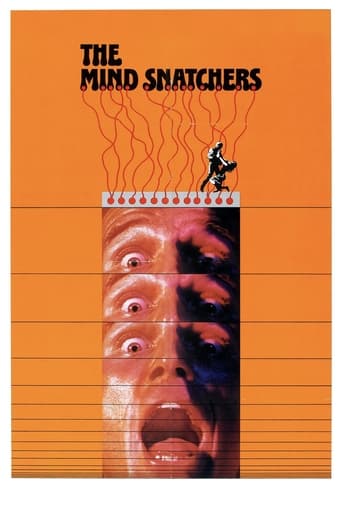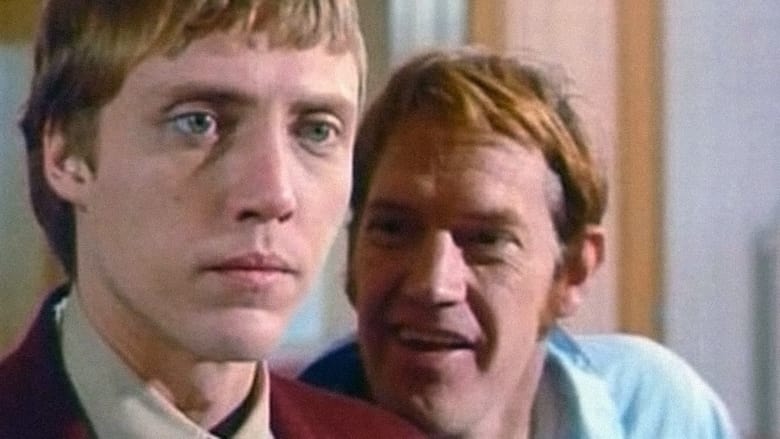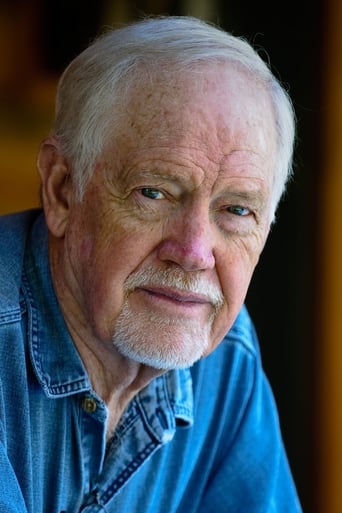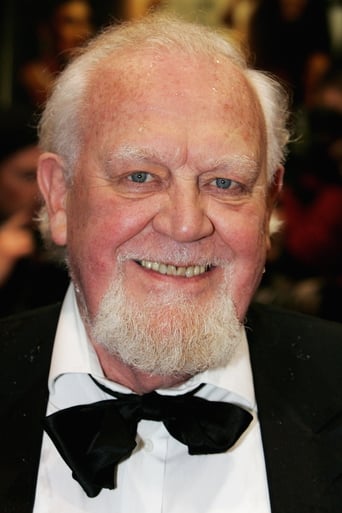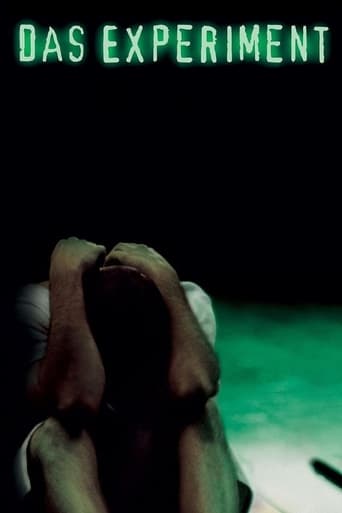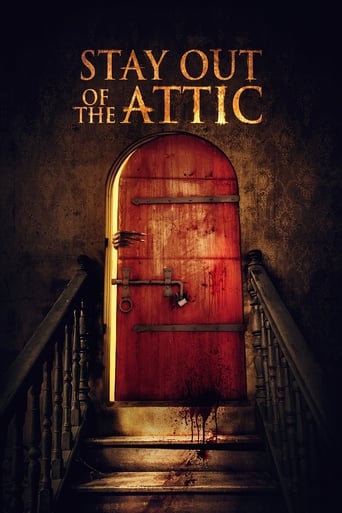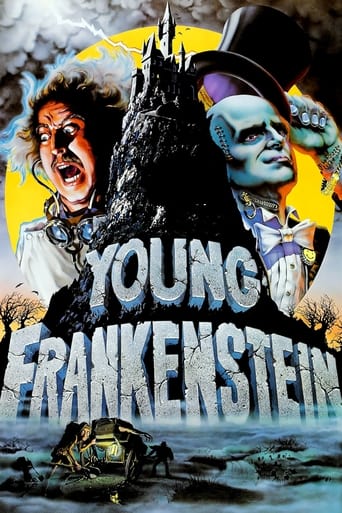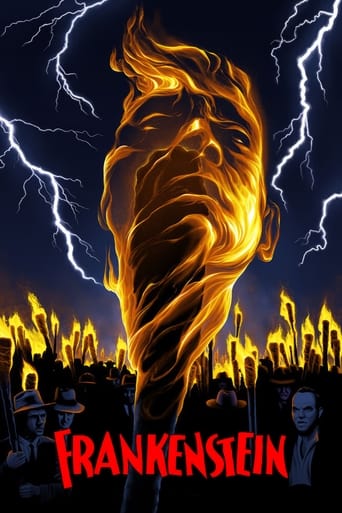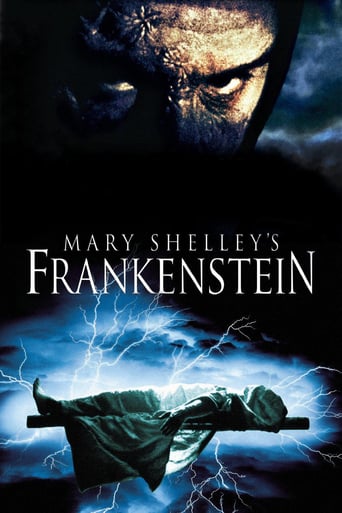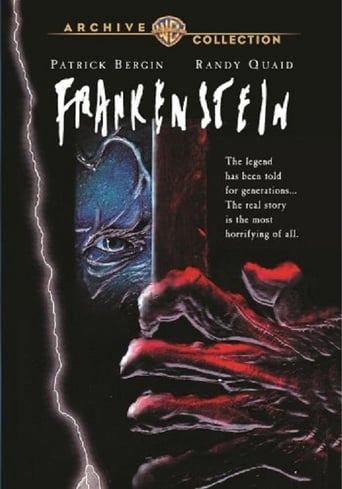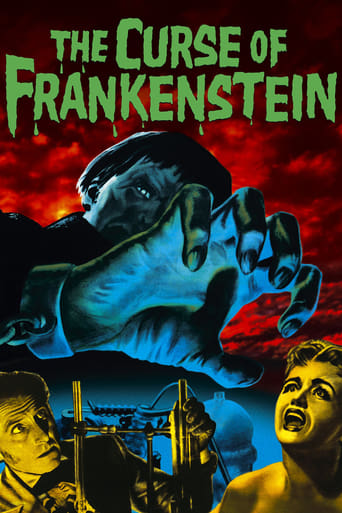The Mind Snatchers (1972)
A German scientist works on a way of quelling overly aggressive soldiers by developing implants that directly stimulate the pleasure centers of the brain.
Watch Trailer
Cast
Similar titles
Reviews
Simply A Masterpiece
This story has more twists and turns than a second-rate soap opera.
It's easily one of the freshest, sharpest and most enjoyable films of this year.
A great movie, one of the best of this year. There was a bit of confusion at one point in the plot, but nothing serious.
A young Christopher Walken brings his typically dynamic presence to this low key drama with a touch of sci-fi. He plays Private James Reese, an aggressive young soldier stationed in Germany who gets in trouble one too many times to suit his superiors. So they ship him off to a hospital in the country where Dr. Frederick (Joss Ackland), the man in charge, has come up with an experimental way to suppress hostile behaviour. Reese doesn't trust Frederick, and is suspicious of the whole set-up and location. The Army, represented by a Major (Ralph Meeker), is overseeing the whole thing and of course doesn't want anything jeopardizing their efforts.Those new to this film, such as this viewer, may be caught a little off guard with the nature of this film, which the advertising tries to sell as a horror movie. Well, there's some scary stuff in this story (based on the play by Dennis Reardon), but this is definitely not a horror movie in the traditional sense. It's quite deliberate in its pacing, and is very talky, so it may test the patience of some audience members. Still, it's often amusing, and interesting. A lot of the running time is devoted to portraying the evolving relationship between Reese and his live wire fellow patient Boford Miles (an incredible, standout performance by Ronny Cox). Miles is a very troubled individual, as we see from the kinds of things that he gets up to. It's a saddening moment for the character when he finally relents to being subjected to the experimental procedure, and you feel quite bad for him.Ultimately, the plight of these characters makes for fairly compelling material. The actors are all wonderful; Walkens' trademark personality shines through at some points, although he also gets a chance to do some really serious acting, in what was one of his earliest movie roles. Cox (who was also a relative newcomer to film, having made "Deliverance" previously) is excellent and he and Walken work well together. Ackland and Meeker are both solid as the well-meaning and not so well-meaning antagonists, character actor Marco St. John has a lively role as a jovial orderly, and Bette Henritze is touching as kindly nurse Anna Kraus.This may not be anything truly special, necessarily, but it's still potent and involving entertainment and fans of Walken and Cox will almost certainly want to give it a look.Seven out of 10.
soldiers with facial hair? With a name like "The Mind Snatchers", I naturally assumed this was a film about space aliens abducting and scrambling the brains of folks. However, the film has absolutely nothing to do with this but is instead a slightly paranoid but thought-provoking film about psychiatric ethics.The film begins with a VERY obnoxious and angry soldier, Pvt. Reese (Christopher Walken) bullying and mistreating everyone. He's soon arrested by the military police and incarcerated for psychiatric tests to determine what his issues are. They diagnose him with a personality disorder (no duh!) and schizophrenia--and, without his permission, they ship him off to a very strange hospital where there appear to be only three patients. One is SERIOUSLY disturbed and a total mess. Another (Ronny Cox) is a sex offender. And, the third is Reese. What is this all about? No one tells Reese and he's left to wonder. And, through the course of the film, it becomes more and more apparent that the military is planning on doing some sort of insidious mind-control experiment on them! Despite a low budget and that the film is inexplicably set in Germany (I think this was due to funding), the movie has a very compelling script and has a lot of interesting things to say about abuses within psychiatry where, it seems, the end does justify the means. A very good and unusual film to say the least--and an interesting early Walken role. Well worth seeing, though I doubt if the average person would enjoy this. Me, with my background in psychology, I loved it and thought it brought up some very interesting concerns.
I had a "What the hell did I just watch?!" experience with this movie, and I mean that in a good way - a real buried treasure. This one is based on a play and as a result the early dialogue scenes make it seem like the previous 25 years of screen writing technique had not occurred - lots of snappy one-on-one character dialogue and hearty expositions. It's not as bad as it sounds though; it's actually pretty cool, and soon enough it goes over the edge, with subtext run amuck. This is an allegory about the colluding interests of the military and psychiatric establishments - a hardcore, polemical one. Christopher Walken, young like crazy, is the Angry Young Man in the Wild One/Jailhouse Rock tradition, except he gets sent to a military hospital where they f*ck around with monkeys and put electrodes in GIs heads to test fancy shock machines. The twist is that the psychiatrist refuses to operate without consent - so he goads consent out of the patients by the most devious, predatory means - and then gets THEM to push the button. At the end Walken is paraded before the media in a military uniform, standing on a stage with the doctor and the general, and he offers completely vacuous, completely familiar answers to the usual questions - but before each answer, they have to push the button. The TV was off for ten minutes before I realized - IT DOESN'T TELL US WHO'S PUSHING THE BUTTON. That about sums it up, doesn't it? Another coup: when the old-maid nurse is about to be raped by the hyperactive Ronny Cox, she startlingly yells, "You don't love me because I'm fat!!!" There's a lot of detail here. The soundtrack - by Phil Ramone, Billy Joel's producer and the guy the Ramones ripped their name off from - is completely insane, at times it sounds like a cross between Philip Glass and Captain Beefheart's Magic Band. My only question is, were any animals harmed during the making of this picture? Those are some stressed-out monkeys. Finally: be advised that Cox's self-buttoning scene is f*cking disturbing, even if it is justified rhetorically.
CONTAINS SPOILERSThe best reason to see this is an early and characteristic performance by Christopher Walken. The film itself is a sombre, small scale piece, developed from a play. It betrays its origins through plenty of dialogue, some suspense, but little real action. This is one of those early seventies films revealing a fashionable anger against the industro-military complex, but which offers no radical agenda of its own. Like the director's 'Name for Evil' made around the same time, The Mind Snatchers' is about mental confusion, but here the emphasis is on deliberate manipulation of the brain rather disorientation. There is no inexplicable mental collapse on show here. Instead we are confronted with a state-sponsored trip', a mind control experiment, undertaken in Germany on American soldiers conveniently designated psychotic' by the powers who need subjects to operate on. As the alienated and violent James Reese, Walken breaks his arm in a dispute with the Military Police and instead of the cooler, soon finds himself in an enigmatic hospital, one of only three patients.Outside of the opening scenes, showing Reese's fraught social interractions then arrest, and the last, showing him on display at a press conference, the film never leaves the institution's grounds. Shot atmospherically on location, the place is a large, empty echoing establishment, whose sanitorium-like atmosphere is at odds with the doom it threatens. It is a cold, efficient clinic, reminiscent of Cronenberg's world of white coated attrocities just starting on film at the same time. As a hospital it is as much understaffed as it is underpatiented (although barbed wire and dogs keep the few people in.) Besides Dr Frederick, the orderly Shannon, a nurse and red cross visitor, no one else is in evidence. For a supposed high priority government project this is disconcerting, to say the least. Like Reese we expect something more than this to rail against. He shares a room briefly with a third patient (whose unpredictable yells are a disturbing touch), then is left to interract with Miles, a sergeant with dangerous mood swings. A bond gradually forms between these two men - but not until Miles' health suddenly deteriorates and he has volunteered for the experiment, which has already killed the last patient.The cool, dangerous and distanced persona of Reese is perfect for Walken. This was his third film (after The Anderson Tapes') and as the incarcerated Private he inculcates exactly the right degree of repressed rage and wariness the role demands. Although the film is dialogue heavy, the central relationship, that between Reese and Miles works well. Miles' taunting sexuality, nervous anticipation and jittery humour contrasts well with Reese's objective assessment of his exploitation. We sense Reese's reserves of strength, which makes the end of the film all the more shocking. As Miles, Ronnie Cox is also a strong character, but we know that he probably does not have the survival instinct of our hero, and his fate justifies our suspicions. Together the two hold the screen for long minutes, making it a shame that Joss Ackland's stodgy Dr Frederick lowers the suspense and tension on each appearance. In fact, Frederick's ignorance and belated conscience struggle, after `23 year's research on one small part of the human brain', is one of the least convincing aspects of the plot. Bemused and lethargic, he seems to have strolled in from a far more gentele story, and his concerned crackpot character never really catches fire. The same might be said for the oily Major, played by the normally excellent Ralph Meeker who has little to do here save trigger the experimentation on Reese.First however, it is Miles who is hooked up to the mind-snatching machine, which has an effect (albeit more sinister) similar to the orgasmatron' familiar from Woody Allen's Sleeper'. As a violence-inhibiter and psychosis-reducer, the effects of the self activated machine is certainly effective. It is described by Miles as like being in `a huge woollen glove', before he clutches his crotch in self-absorption. (`Get the bugs out and I'll be the first in line, Doctor' admits the grim Major with unconscious irony.) Reese has a greater sense of himself as an individual however, and initially refuses the treatment, saying `pain defines me it makes me what I am'. The final press conference is abrupt and chilling. Reese is caught in a freeze frame while the Major proclaims blithely that `The Military is always interested in the betterment of Mankind', and so on. In a way which might have reflected the disbelief on the face of a contemporary audience, Reese's fate has been the loss of individuality, of emotion and power. This is an ultimate fate familiar from many other movie distopias, and is perhaps where the film most clearly reveals its roots. These days we may prefer our messages less hammered home, but for those who enjoy their brain washing movies cold and without the trimmings, this can be recommended.
